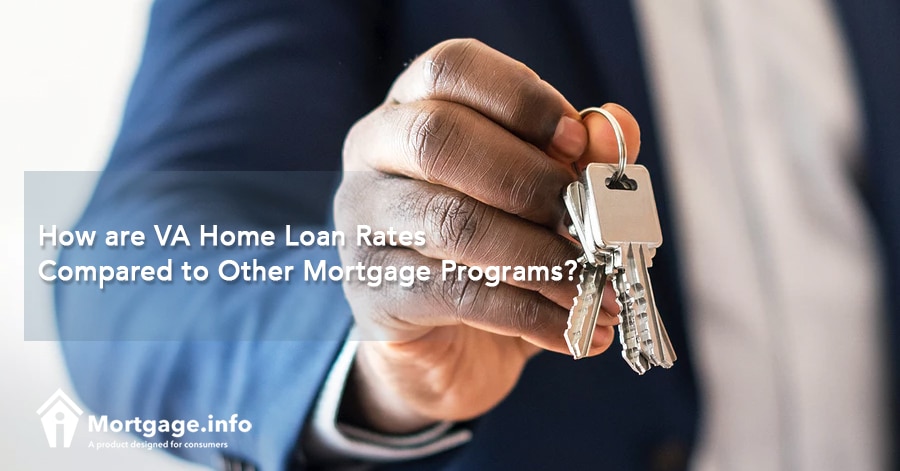
Veterans have the good fortune of securing a VA loan that has flexible guidelines and low closing costs. In addition, VA loans have low-interest rates compared to many other loan programs. However, this isn’t a blanket statement. Just as is the case with any loan, your interest rate depends on your qualifying factors.
Looking for Current Mortgage Interest Rates? Click Here.
VA lenders have the option to add to the interest rates they would normally charge on a VA loan if you have any ‘risky factors.’ Keep reading to learn what might increase your VA interest rate.
What’s Your Credit Score?
First, your credit score plays a major role. The higher your credit score is, the less likely it is that a lender will increase your interest rate. Your credit score lets a lender know your level of financial responsibility. If you have a high credit score, it lets a lender know that you pay your bills on time and don’t overextend yourself financially.
If you have a low credit score, it’s more likely that you make your payments late or that you overextend yourself financially. Lenders will need to take some type of precaution against default on the mortgage. They typically increase your interest rate to make up for this risk. While the VA does allow credit scores as low as 620, it’s better if you have a higher interest rate to help keep your interest rate low.
What’s Your Debt Ratio?
It’s true that the VA doesn’t put a lot of emphasis on debt ratios, but it still plays a role. Technically, the VA doesn’t want a debt ratio that exceeds 41%. This means that all of your monthly debts, such as your credit card payments, car loan payments, student loan payments, and the new mortgage payment shouldn’t exceed 41% of your gross monthly income.
This doesn’t mean that you won’t get approved if you have a debt ratio that exceeds 41%, though. If you do, the VA lender might be able to grant an exception up to a 43% debt ratio. In exchange, though, they will likely give you a slightly higher interest rate in order to account for the higher debt ratio, which makes you a higher risk of default.
Click to See the Latest Mortgage Rates.
Do You Have Full Entitlement?
Another factor is your entitlement. This is the amount of your loan that the VA will guaranty. Veterans automatically get full entitlement of $484,350 if they meet the service time requirements and have an honorable discharge. This means that you are eligible for a loan amount of up to $484,350 if you qualify for it. The VA will guaranty this amount. This means that they will pay the lender 25% of the amount that you default on if you don’t pay your mortgage.
If you don’t have enough entitlement to cover your loan amount, it puts the lender at risk. Generally, any loan amount that you need above the available entitlement requires a down payment. The lender will typically ask for a 25% down payment on the difference between the purchase price and the amount of entitlement that you have available.
This does put the lender at risk, though. Once you give up some of your reserves, you have less money to pay your mortgage should something happen to your income. Without full entitlement from the VA, the lender stands to lose money on the deal. This may make them give you a higher interest rate.
The Big Picture
Overall, lenders look at the big picture. They might not focus on your credit score or debt ratio alone. Instead, they look at how it all adds up. Are you a good risk or do you pose some risk of default? For example, if you have a lower credit score, but you have a low debt ratio, the low debt ratio can offset the low credit score. A lender may increase your interest rate, but not as much as you might think because overall, you are a low risk of default.
The best way to make sure that you get the lowest VA interest rate possible is to shop around. You don’t have to use a specific lender. There are thousands of VA-approved lenders out there today. Get at least three quotes so that you can see who offers you the best deal between the interest rate and closing costs.
